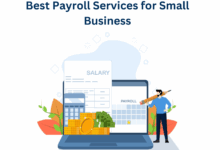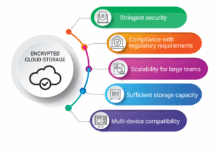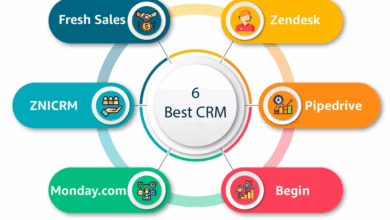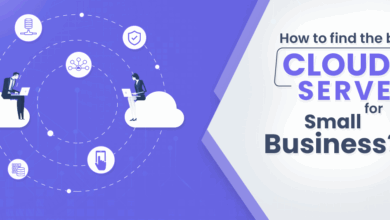Best Ecommerce Platforms for Startups in 2025: A Comprehensive Guide for New Businesses
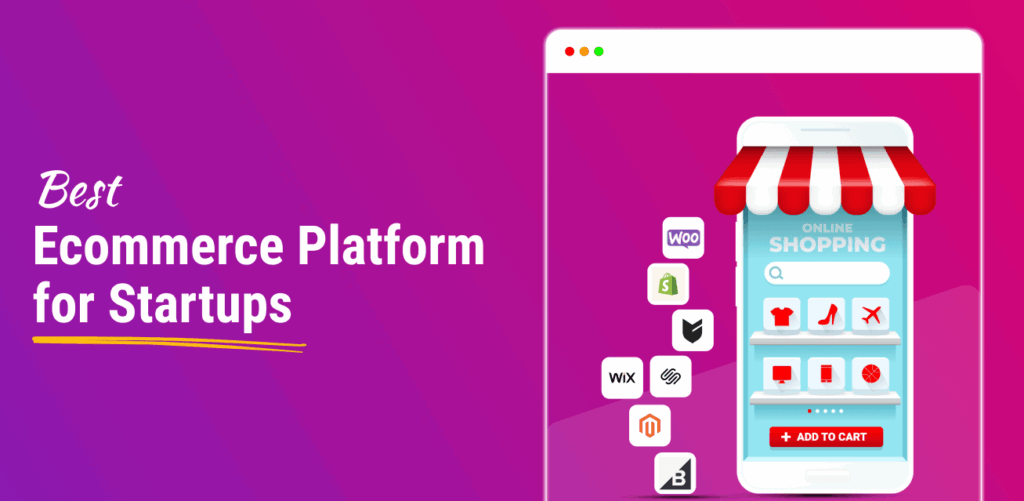
Starting an online business can be both exciting and challenging. As a startup, choosing the right ecommerce platform is crucial to setting a solid foundation for your business’s success. In this article, we’ll explore the best ecommerce platforms for startups in 2025, highlighting their features, benefits, and transactional details to help you make an informed decision. Whether you are selling physical products, digital downloads, or services, the right ecommerce platform can make all the difference in ensuring smooth operations and long-term growth.
Why Choose the Best Ecommerce Platform for Your Startup?
Choosing the right ecommerce platform is one of the most important decisions you’ll make as a startup. A good platform allows you to focus on growing your business rather than managing technical issues. Here’s why selecting the best ecommerce platform is so crucial:
- Scalability
Startups often face rapid growth in their early stages. A good ecommerce platform should be able to scale with your business. Whether you are selling a handful of products or expanding to hundreds, the right platform can support your growth without the need for a complete overhaul down the line. - Ease of Use
Many ecommerce platforms are designed for users with little to no technical experience. A user-friendly platform lets you manage your store efficiently, create beautiful designs, and make changes without needing to hire a developer. - Cost Efficiency
Startups need to keep costs under control while providing a seamless shopping experience. The best platforms offer a balance between price and functionality, giving you the tools you need to succeed without breaking the bank. - Security
Security is paramount for ecommerce stores. A reputable platform ensures your customers’ data is secure and that you comply with industry standards, such as GDPR and PCI-DSS. - Integrations & Customization
As your startup grows, you’ll need to integrate third-party tools, such as payment processors, marketing platforms, and shipping solutions. A flexible platform allows you to seamlessly integrate with these tools to enhance your workflow.
How to Choose the Best Ecommerce Platform for Startups?
When selecting an ecommerce platform for your startup, consider the following factors:
1. Ease of Use and Setup
As a startup, time is precious, and you need a platform that is easy to set up and manage. Look for a platform that offers drag-and-drop features and pre-designed templates so you don’t need coding skills to launch your online store.
2. Customization and Flexibility
The ecommerce platform should allow you to customize your store to reflect your brand identity. Look for platforms that offer a wide range of themes, and flexibility in product pages, checkout processes, and even features like SEO settings.
3. Mobile Compatibility
With the increasing use of smartphones for online shopping, a responsive, mobile-friendly ecommerce platform is essential. Make sure the platform you choose ensures a smooth shopping experience for users on any device.
4. Security and Compliance
Ecommerce sites are prime targets for hackers. Ensure the platform includes SSL certification, secure payment gateways, and features that protect your business and customers from fraud.
5. Support and Resources
Startups often face challenges while launching, so having access to reliable customer support is essential. Opt for platforms that offer responsive support via live chat, email, and helpful documentation.
The Top Ecommerce Platforms for Startups in 2025
Here are 5 of the best ecommerce platforms for startups in 2025. We will compare each platform’s features, pricing, pros, and cons to help you decide which one suits your business best.
1. Shopify
Overview: Shopify is one of the most popular ecommerce platforms for startups. Known for its ease of use, flexibility, and scalability, it’s an excellent choice for entrepreneurs looking to get their online store up and running quickly.
- Use Case: Ideal for businesses of any size, from small shops to large enterprises. Great for entrepreneurs looking to sell physical products, services, and even digital products.
- Pros:
- Easy-to-use interface
- Wide range of customizable themes
- Mobile-optimized
- 24/7 customer support
- Large app marketplace for integrations
- Cons:
- Transaction fees (if not using Shopify Payments)
- Limited customization compared to open-source platforms
- Price: Starts at $29/month, with a 14-day free trial.
2. Wix eCommerce
Overview: Wix is a website builder that offers ecommerce capabilities for startups. Its drag-and-drop interface is perfect for entrepreneurs with no coding experience, and it offers a high degree of design flexibility.
- Use Case: Best suited for small businesses or entrepreneurs who want a visually stunning website without the technical complexities.
- Pros:
- Drag-and-drop editor
- Beautiful, customizable templates
- Affordable pricing
- Integrated SEO tools
- Cons:
- Limited scalability for larger businesses
- Fewer ecommerce-specific features compared to dedicated platforms like Shopify
- Price: Starts at $23/month for ecommerce plans, with a 14-day free trial.
3. BigCommerce
Overview: BigCommerce is a powerful ecommerce platform designed for scalability. It’s ideal for startups that anticipate rapid growth and need more advanced features than those provided by basic platforms.
- Use Case: Perfect for growing businesses that need an ecommerce solution with robust tools for managing inventory, shipping, and analytics.
- Pros:
- Excellent SEO features
- Built-in payment processing options
- No transaction fees
- Multi-channel selling (Amazon, eBay, etc.)
- Cons:
- Steeper learning curve for beginners
- Limited theme customization
- Price: Starts at $29.95/month.
4. Squarespace
Overview: Squarespace is primarily a website builder but offers ecommerce features that are perfect for creative entrepreneurs. With its sleek, modern templates and intuitive design tools, it’s a great choice for visually-focused businesses.
- Use Case: Best for businesses in the creative sector, such as photographers, artists, and fashion brands, who prioritize aesthetics and brand identity.
- Pros:
- Stunning design templates
- User-friendly interface
- Built-in blogging platform for content marketing
- Integrated marketing tools
- Cons:
- Limited scalability
- Some features are limited compared to other platforms like Shopify
- Price: Starts at $26/month.
5. WooCommerce
Overview: WooCommerce is an open-source WordPress plugin that allows you to turn your WordPress website into a fully functional online store. It’s one of the most flexible platforms, especially for businesses that already use WordPress.
- Use Case: Ideal for businesses that already use WordPress or want full control over their store’s design and functionality.
- Pros:
- Highly customizable
- Extensive plugins and integrations
- No monthly fees (but hosting is required)
- Open-source platform with a large community
- Cons:
- Requires some technical knowledge to set up and manage
- Needs reliable hosting and additional plugins for full functionality
- Price: Free plugin, but hosting and premium plugins come at an additional cost.
Comparison Table Best Ecommerce Platforms for Startups
| Platform | Use Case | Pricing | Key Features | Pros | Cons |
|---|---|---|---|---|---|
| Shopify | All business types | From $29/month | Customizable themes, 24/7 support, mobile-optimized | Easy to use, scalable | Transaction fees, limited customization |
| Wix eCommerce | Small businesses | From $23/month | Drag-and-drop editor, beautiful templates, SEO tools | Affordable, user-friendly | Limited ecommerce features |
| BigCommerce | Growing businesses | From $29.95/month | SEO tools, multi-channel selling, no transaction fees | Great for scaling, no fees | Steep learning curve |
| Squarespace | Creative entrepreneurs | From $26/month | Stunning design templates, integrated marketing tools, blogging platform | Great for visuals, easy to use | Limited scalability |
| WooCommerce | WordPress users, flexible needs | Free, but hosting cost | Highly customizable, wide range of plugins, open-source | Flexible, cost-effective | Requires technical knowledge |
Where and How to Buy Ecommerce Platforms for Startups
- Shopify: You can sign up for Shopify directly here. Start your free trial and choose a plan based on your needs.
- Wix eCommerce: To get started with Wix, head over to Wix eCommerce. Choose a plan and start building your store right away.
- BigCommerce: You can try BigCommerce here. Start with their free trial and see if it suits your needs.
- Squarespace: Visit Squarespace to choose an ecommerce plan and start building your beautiful store.
- WooCommerce: Download WooCommerce for free at WooCommerce, but remember to choose reliable hosting to get the full benefits of this platform.
Choosing the Right Ecommerce Platform for Your Startup
Selecting the best ecommerce platform for your startup is a critical decision that can impact the growth and success of your online store. Each platform offers unique features that cater to different business needs, whether you’re looking for ease of use, scalability, customization, or a great user experience.
Consider your business’s goals, the type of products you sell, and the budget you have available when making your decision. With the right ecommerce platform, you can build a thriving online store that will set you up for long-term success.
Detailed Benefits of Using the Best Ecommerce Platforms for Startups
Choosing the right ecommerce platform doesn’t just involve the basic features, such as price and ease of use. It’s about aligning the platform with the unique needs of your startup. Here’s a deeper look into the specific benefits of each ecommerce platform:
1. Shopify: Best for Scalability and Versatility
Benefits:
- Scalable Growth: Shopify is renowned for its ability to scale with your business. As your startup grows, Shopify can handle large product catalogs, higher website traffic, and more complex business operations without compromising speed or performance.
- All-in-One Solution: Shopify integrates payment processing, order management, inventory management, and shipping into one seamless interface. This convenience allows you to focus on growth and sales without juggling multiple tools.
- App Ecosystem: Shopify’s app marketplace contains thousands of apps, enabling startups to add advanced features such as advanced email marketing, customer relationship management (CRM), and automated order fulfillment.
Real-World Use Case:
- Case Study: A fashion startup using Shopify to sell custom clothing online was able to scale its business by integrating Shopify with tools like Printful (for on-demand printing and shipping) and Klaviyo (for advanced email marketing), significantly increasing sales while keeping overhead costs low.
2. Wix eCommerce: Best for Creatives and Simple Setup
Benefits:
- Intuitive Design: Wix is particularly beneficial for startups that need an aesthetic and functional online store. The drag-and-drop builder allows users to create visually appealing websites without technical skills. This makes Wix an ideal choice for startups in industries like photography, art, and handmade goods.
- Affordable Pricing: Wix provides a competitive pricing model that offers great value for startups on a budget. You can build a professional-looking ecommerce website without paying for expensive web development services.
- Integrated Marketing Tools: Wix comes with built-in tools for SEO, email marketing, and social media integrations, which are important for driving traffic and conversions, especially for new businesses that need to grow their audience.
Real-World Use Case:
- Case Study: A startup jewelry business used Wix to create a minimalist website that reflected the brand’s style. Using Wix’s SEO tools, they improved their website’s visibility on Google, which led to a significant increase in organic traffic and online sales within the first six months.
3. BigCommerce: Best for Fast-Growing Startups
Benefits:
- Comprehensive Built-In Features: BigCommerce provides a wide range of features for startups looking for a more advanced ecommerce solution. Unlike Shopify, BigCommerce doesn’t charge transaction fees, which can be beneficial for businesses with high sales volumes.
- Multi-Channel Selling: BigCommerce allows businesses to easily expand beyond their website and sell products on platforms like Amazon, eBay, Facebook, and Instagram. This is crucial for startups looking to reach a broader audience early on.
- Powerful Analytics: BigCommerce offers robust analytics tools that give startups actionable insights into customer behavior, sales trends, and marketing performance, helping businesses make data-driven decisions for growth.
Real-World Use Case:
- Case Study: A startup selling eco-friendly home products used BigCommerce to set up an online store and began selling on multiple channels, including Amazon and eBay. With BigCommerce’s integration tools, they were able to seamlessly manage inventory and orders across these platforms, increasing sales and reaching more customers.
4. Squarespace: Best for Small Creative Businesses
Benefits:
- Beautiful Templates: Squarespace’s ready-to-use, beautifully designed templates make it ideal for startups in creative industries like photography, fashion, and digital products. The templates are fully customizable and optimized for mobile devices, ensuring a seamless user experience.
- All-in-One Design and Ecommerce Tools: Squarespace combines website design and ecommerce features into a single platform. This helps startups avoid the hassle of integrating third-party tools.
- Content-Driven Marketing: Squarespace also includes excellent blogging and content management tools, making it easy to build and manage a blog. Content marketing is essential for startups looking to create brand awareness and engage customers.
Real-World Use Case:
- Case Study: A startup offering custom artwork leveraged Squarespace’s built-in blogging features to showcase their creative process and behind-the-scenes content. The blog helped build a loyal audience, leading to repeat customers and an expanding email list.
5. WooCommerce: Best for WordPress Users and Customization
Benefits:
- Complete Customization: WooCommerce is highly flexible and allows you to modify your ecommerce store however you like. Whether you need custom product pages, checkout options, or shipping rates, WooCommerce offers a range of plugins to customize your store to fit your needs.
- No Monthly Fees: Unlike other ecommerce platforms, WooCommerce itself is free. However, you will need to pay for hosting and other premium features (e.g., themes, plugins). This can be a cost-effective solution for startups with a small budget.
- Large Community and Resources: Being open-source, WooCommerce has a large community of developers and users. There’s a wealth of tutorials, forums, and resources to help you get started and troubleshoot any issues.
Real-World Use Case:
- Case Study: A small tech startup selling electronic accessories used WooCommerce to build a custom website on WordPress. With WooCommerce, they were able to integrate advanced product customization options, offer subscription-based services, and create tailored discount codes, driving repeat business.
Where to Buy and How to Get Started with Ecommerce Platforms
Shopify
Where to Buy: You can sign up for Shopify directly through their official website: Shopify
How to Buy: Start with a 14-day free trial, and then choose a plan based on your business’s size and requirements (Basic, Shopify, or Advanced).
Price: Starts at $29/month after the free trial.
Wix eCommerce
Where to Buy: Get started with Wix’s ecommerce solution by visiting Wix eCommerce.
How to Buy: Choose the plan that suits your business needs (Business Basic, Business Unlimited, or Business VIP).
Price: Starts at $23/month.
BigCommerce
Where to Buy: Begin your journey with BigCommerce by visiting BigCommerce.
How to Buy: BigCommerce offers a free 15-day trial, after which you can choose from different pricing tiers based on your sales volume.
Price: Starts at $29.95/month.
Squarespace
Where to Buy: Start building your ecommerce store on Squarespace by visiting Squarespace.
How to Buy: You can start with a free trial and then select from their ecommerce plans.
Price: Starts at $26/month.
WooCommerce
Where to Buy: Download WooCommerce for free from the official website: WooCommerce.
How to Buy: As WooCommerce is a WordPress plugin, you’ll need to install it on your WordPress site and choose a hosting provider for your site.
Price: Free to use, but additional costs for hosting and premium plugins.
Conclusion: Finding the Right Ecommerce Platform for Your Startup
Choosing the best ecommerce platform for your startup depends on your specific needs, budget, and business goals. Whether you’re looking for simplicity, scalability, or customization, each of the platforms discussed in this guide offers valuable features to support your ecommerce business’s growth.
By carefully considering your business model, product offerings, and desired features, you’ll be well on your way to selecting a platform that will help your startup thrive in the competitive online marketplace.
Ready to launch your online store? Start by exploring these top ecommerce platforms and take the first step toward building a successful online business today.
Deeper Dive into Real-World Applications of Ecommerce Platforms
In this section, we will explore how specific types of startups can benefit from using the ecommerce platforms discussed earlier. This will help potential users understand how these platforms can be applied to various business models and industries.
1. Fashion and Apparel Startups
For fashion and apparel startups, ecommerce is an essential part of business success. Customers expect a seamless, visually appealing online shopping experience. Here’s how different platforms can serve this industry:
- Shopify: Shopify is an excellent choice for fashion startups because of its customizability and ability to support high volumes of product variations (sizes, colors, etc.). The platform’s integration with social media channels like Instagram and Facebook is ideal for showcasing products and driving sales.
- Example: A clothing brand using Shopify can seamlessly integrate with third-party apps like Oberlo for dropshipping or Printful for print-on-demand items. These integrations help save on inventory costs and manage fulfillment directly from the platform.
- Wix: Wix is an affordable solution for small fashion startups that need a beautiful website with a focus on branding and visuals. Wix’s drag-and-drop builder is perfect for entrepreneurs with little technical expertise. Additionally, the mobile optimization ensures that customers shopping on their smartphones have a smooth experience.
- Example: A boutique clothing shop can use Wix to build a stylish website with high-quality images and product galleries, ensuring that the aesthetic appeals to its target audience.
- BigCommerce: For fashion businesses planning to expand quickly, BigCommerce’s multi-channel selling feature is invaluable. You can easily expand to platforms like Amazon, eBay, or even integrate with Instagram shopping to sell directly through your social media profiles.
- Example: A startup fashion brand can use BigCommerce to sync inventory across multiple channels and avoid overselling. Additionally, the advanced SEO features ensure the site ranks well on search engines, driving organic traffic.
2. Health and Wellness Startups
Health and wellness startups need ecommerce platforms that focus on customer trust, secure transactions, and smooth product delivery. Here’s how different platforms can serve this industry:
- Shopify: Shopify’s secure payment options, SSL certificates, and compliance with PCI-DSS make it an excellent choice for health-related products. Whether you are selling supplements, fitness equipment, or personalized health products, Shopify can help your business build trust with customers while providing seamless transactions.
- Example: A startup selling supplements can utilize Shopify’s subscription model to offer customers a recurring order option, boosting customer retention.
- WooCommerce: WooCommerce is perfect for health businesses already on WordPress who want to manage a content-driven ecommerce site. Health startups can create a blog, provide health resources, and integrate ecommerce all in one place, which builds trust and credibility with visitors.
- Example: A wellness startup offering yoga accessories can benefit from WooCommerce’s customization to integrate educational blog content and ecommerce in one seamless experience. You can sell courses, merchandise, or even one-on-one sessions via integrated booking plugins.
3. Tech and Electronics Startups
Tech startups often sell complex products that require detailed specifications and advanced features like multiple payment gateways, easy inventory management, and international shipping.
- BigCommerce: BigCommerce is tailored for tech startups that need a robust platform to handle complex product catalogs, international shipping options, and multiple payment methods. The platform’s built-in SEO features help get products noticed on search engines, while its enterprise-level features ensure scalability as the business grows.
- Example: A startup selling smart gadgets can use BigCommerce to handle bulk orders, integrate Amazon and eBay for increased visibility, and provide an automated support ticket system to assist customers.
- WooCommerce: For tech startups that want complete control over their website’s design and functionality, WooCommerce is a great option. Being open-source, it offers maximum flexibility to integrate with advanced tools like product configurators, live chat support, or product demo videos.
- Example: A startup selling computer accessories can use WooCommerce’s flexible product options to allow customers to customize their orders, such as choosing colors, types, and specs.
4. Handmade and Custom Goods Startups
Ecommerce is essential for handmade and custom goods startups that want to show off their products and interact with customers through a personalized shopping experience.
- Wix: For creative businesses, Wix’s customizable templates allow for visually stunning stores that highlight the unique nature of handmade products. With a strong focus on aesthetics, Wix can give your handmade product business a polished, professional look without needing technical skills.
- Example: A jewelry brand offering custom-made pieces can use Wix’s tools to create an interactive experience where customers can design their own pieces, adding gemstones, engravings, and more.
- Squarespace: Squarespace is ideal for creative entrepreneurs who want to create a professional online portfolio in addition to their ecommerce store. Its design-focused tools allow for a highly personalized storefront that can showcase unique creations.
- Example: A ceramic artist selling handmade pottery could create an online store with Squarespace that displays their collection of unique pieces and integrates an online booking feature for custom orders.
Where to Buy and How to Buy
We’ve previously discussed where and how to get started with each platform, but now let’s look at more transactional details regarding pricing and where to find the best deals for startups:
Shopify
- Pricing: Shopify’s pricing starts at $29/month for the Basic plan, with additional features available in higher-tier plans. For startups with high sales volume, the Advanced plan starts at $299/month.
- How to Buy: Sign up here to start your free trial and explore Shopify’s features.
- Discounts: Shopify often offers promotional discounts for new users, so check for special offers or trials.
Wix eCommerce
- Pricing: Wix plans for ecommerce start at $23/month for the Business Basic plan, with higher-tier plans offering more advanced features like unlimited bandwidth and priority support.
- How to Buy: Get started with Wix eCommerce here and choose your plan.
- Discounts: Wix regularly offers promotional discounts, especially for annual subscriptions, so keep an eye out for deals.
BigCommerce
- Pricing: BigCommerce’s Standard plan starts at $29.95/month, and there are higher-tier plans for larger businesses with more advanced features.
- How to Buy: Start your free trial at BigCommerce and explore the platform.
- Discounts: BigCommerce often runs sales or offers longer free trials, especially during certain times of the year.
Squarespace
- Pricing: Squarespace ecommerce plans start at $26/month for the Business plan, with additional features available at higher pricing tiers.
- How to Buy: Start your Squarespace journey here and select your plan.
- Discounts: Squarespace offers seasonal promotions and special offers for new users, so be on the lookout for discounts on annual plans.
WooCommerce
- Pricing: WooCommerce is a free plugin, but you will need to pay for WordPress hosting (ranging from $3-15/month depending on the provider) and any premium themes or plugins you may want to use.
- How to Buy: Get WooCommerce here and install it on your WordPress website.
- Discounts: Many hosting providers offer special deals for WordPress users, including discounted or free WooCommerce hosting for the first year.
Choosing the Best Ecommerce Platform for Your Startup
Choosing the right ecommerce platform is a key decision that can shape the future of your startup. Whether you prioritize ease of use, scalability, or customization, there’s an ecommerce platform that fits your needs. Remember, each platform has unique strengths, so consider your business type, growth potential, and budget before making a decision.
With the right platform, you can seamlessly launch your online store, attract customers, and scale your business as demand grows. Start your journey today with one of these top ecommerce platforms and watch your startup flourish!
Advanced Features and Future-Proofing Your Ecommerce Store
For startups aiming for long-term success, choosing an ecommerce platform is not just about the present—it’s about setting up your business for scalability and future growth. Here’s a look at how different platforms prepare your store for the future.
Shopify’s Future-Proof Features
Advanced Analytics:
- Shopify’s Analytics and Reports feature allows you to track vital metrics like sales trends, traffic sources, and conversion rates. This is crucial for any startup that aims to optimize its store as it grows. As your business scales, Shopify’s data insights help you adjust marketing strategies and operational processes in real-time.
Global Expansion:
- Shopify supports multi-currency, multi-language, and multi-country selling. This means that as your startup expands, you can easily reach international markets. Shopify’s built-in features allow you to sell in various currencies, charge appropriate taxes, and manage international shipping with ease.
Product Customization:
- Shopify’s app ecosystem includes powerful tools for customizing your products. Whether you’re offering personalized gifts, custom clothing, or tech gadgets with specific specs, Shopify’s apps like Product Customizer give you flexibility without overwhelming your resources.
BigCommerce: Ideal for Startups with Growth Potential
Enterprise-Level Features:
- BigCommerce is designed to handle the demands of fast-growing businesses. With its headless commerce feature, you can customize the user experience extensively. It’s perfect for startups that want to create a unique storefront or integrate ecommerce with other business operations (like ERP systems).
Built-In Security:
- BigCommerce comes with SSL certificates and PCI compliance as standard. This means that customer data is secure, and you can confidently handle credit card transactions without worrying about third-party security breaches. This is especially important as your startup grows and begins handling larger transaction volumes.
Omnichannel Selling:
- One of BigCommerce’s standout features is its omnichannel selling. You can sell your products across platforms like Amazon, Facebook, Instagram, and eBay directly from the BigCommerce dashboard. This multi-channel approach ensures that your products are easily accessible to customers wherever they shop, providing more opportunities for growth.
WooCommerce: A Platform Built for Customization and Flexibility
Complete Customization Control:
- WooCommerce stands out for startups that need total control over their store’s design and functionality. As a WordPress plugin, WooCommerce integrates seamlessly with any WordPress theme, allowing startups to fully control the look, feel, and user experience of their site.
- For instance, tech startups that sell specialized products can build custom product pages using advanced customization options, ensuring a tailored experience for their customers.
Open-Source Flexibility:
- WooCommerce is open-source, meaning you can add or modify any feature you need. This makes it an ideal choice for startups that want to develop unique functionality (e.g., custom payment gateways, loyalty programs, or subscription-based models) without being locked into rigid templates or limitations set by other platforms.
Strong SEO Capabilities:
- WooCommerce is built on WordPress, a platform that is SEO-friendly by nature. It offers powerful tools like Yoast SEO to enhance your site’s search engine rankings. Startups focused on organic traffic can leverage this to attract more visitors to their store.
Where to Buy, How to Buy, and Pricing Breakdown
For each ecommerce platform, it’s crucial to know where and how to get started, the pricing structure, and any special deals or promotions they may be offering for startups.
Shopify:
- How to Buy: Head over to Shopify’s official site and start a 14-day free trial to get a feel for the platform’s features. Once you decide, you can choose from plans that best fit your business needs (Basic, Shopify, or Advanced plans).
- Pricing: The Basic plan starts at $29/month, with more advanced options like Shopify at $79/month, and Advanced Shopify at $299/month.
- Best Deal: Shopify occasionally offers free months or discounted annual plans, so be sure to check for promotions or seasonal discounts that help you get started with minimal upfront costs.
BigCommerce:
- How to Buy: Visit BigCommerce to explore the platform and start with a 15-day free trial. Afterward, you can choose a plan based on your business needs.
- Pricing: BigCommerce’s pricing starts at $29.95/month for the Standard plan, and scales up with the Plus and Pro plans for larger businesses.
- Best Deal: Keep an eye out for special offers such as extended free trials or discounted plans for the first few months.
WooCommerce:
- How to Buy: WooCommerce itself is free to use. You can install it on any WordPress website by visiting WooCommerce and downloading the plugin. However, you will need to purchase hosting (usually ranging from $3-15/month depending on your hosting provider) and possibly premium themes or plugins.
- Pricing: WooCommerce itself is free, but you’ll need to invest in hosting, domain name, and other paid plugins for extended functionality.
- Best Deal: Many hosting providers offer free or discounted WooCommerce hosting for the first year, so consider deals from providers like SiteGround or Bluehost for significant savings.
Wix eCommerce:
- How to Buy: Sign up for an account at Wix eCommerce to start building your store right away. Wix offers an intuitive drag-and-drop interface that makes it easy for anyone to get started without technical knowledge.
- Pricing: Business Basic starts at $23/month, and the Business VIP plan offers more advanced features at $49/month.
- Best Deal: Wix often runs promotional campaigns where you can get discounted rates for annual plans. Be sure to check their website for the latest offers.
Squarespace:
- How to Buy: Visit Squarespace to get started. You can try it for free and test out its ecommerce functionality before committing.
- Pricing: The Business Plan starts at $26/month, with higher-tier plans available for startups that need more features.
- Best Deal: Squarespace frequently offers discounts for new users or annual plans, so be sure to look for promotional codes.
Making the Best Ecommerce Choice for Your Startup
In conclusion, choosing the right ecommerce platform is pivotal to your startup’s success. Each platform—whether it’s Shopify, BigCommerce, WooCommerce, Wix, or Squarespace—offers unique features and advantages tailored to different business needs and growth strategies.
To optimize your decision-making, assess your long-term goals, technical capabilities, budget, and desired features. For startups, Shopify and BigCommerce provide robust scalability, while Wix and Squarespace cater to those who prioritize ease of use and aesthetics. If you need complete control over customization, WooCommerce is the perfect choice.
Starting your online store today with the right platform can help you reach new customers, boost sales, and position your business for success in an increasingly competitive digital world. Don’t wait—get started now and turn your ecommerce dreams into reality!
How These Ecommerce Platforms Empower Startups
As we’ve discussed the basic features of each platform, let’s explore some advanced tools and features that will help startups get ahead of the competition, increase sales, and provide a superior customer experience.
Shopify: Scaling Your Business with Advanced Integrations
Apps & Integrations:
- Shopify App Store offers over 4,000 apps, including tools for email marketing, inventory management, dropshipping, and custom orders. This vast ecosystem allows you to build a fully customized ecommerce experience tailored to your business needs. For instance, a tech startup can integrate inventory management systems or a CRM tool to track customer interactions seamlessly.
AI & Automation:
- Shopify provides AI-powered tools for customer insights and predictive analytics, helping you understand customer behavior and make informed decisions. For example, you can set up automated workflows for order follow-ups, email reminders, or abandoned cart recovery, leading to increased conversions.
Multi-Store Management:
- Shopify enables you to manage multiple stores from a single dashboard. This is ideal for startups that plan to expand their product offerings or enter new markets. You can manage different storefronts for various locations or product lines without the hassle of switching between different accounts.
BigCommerce: Advanced Marketing and Selling Tools
Product Comparison & Customization:
- BigCommerce offers robust tools for custom product pages. You can include product comparisons and allow customers to customize items to their needs (such as tech gadgets or customizable apparel). This is crucial for startups that sell complex products and want to offer personalized experiences for customers.
Marketing Automation:
- BigCommerce provides automated email campaigns, loyalty programs, and coupon generation to incentivize repeat customers. Startups can leverage these tools to create personalized discounts for first-time buyers or offer rewards for returning customers.
Headless Commerce:
- BigCommerce’s headless commerce allows startups to decouple the backend from the frontend. This enables full flexibility for brands that want to use their own design tools while still leveraging BigCommerce’s backend for inventory management, order processing, and payment processing.
WooCommerce: Custom Solutions for Every Need
Advanced Customization with Plugins:
- With WooCommerce, you get access to a wide variety of plugins for every type of business need, whether it’s advanced product filtering, payment gateway integration, or custom shipping options. A custom clothing store can use plugins to allow customers to design their own items (like t-shirts or hoodies), with specific print options.
Mobile Optimization:
- WooCommerce, being open-source, allows full control over mobile optimization. Since mobile shopping is on the rise, startups can ensure that their websites are fully responsive and deliver an excellent shopping experience for users on smartphones and tablets.
Seamless Integration with WordPress:
- Since WooCommerce is part of the WordPress ecosystem, startups can leverage WordPress’ powerful blogging and content features to drive traffic to their store. Content like guides, how-to articles, and product reviews can help improve your SEO and increase organic traffic to your store.
Wix eCommerce: Design & Simplicity for New Store Owners
Design Flexibility:
- Wix offers a drag-and-drop builder that is perfect for startups with limited technical experience but high design ambitions. The platform offers hundreds of designer-made templates to help entrepreneurs create visually stunning stores without needing a designer or developer.
Simple Integrations:
- Wix integrates with tools like PayPal, Stripe, and Square for payments, along with social media platforms like Facebook, Instagram, and Pinterest. This makes it easy to reach customers directly on the platforms they already use.
Affordable Pricing:
- Wix is an affordable option for startups with tight budgets, offering plans starting at just $23/month. With no need to hire developers or designers, startups can set up a professional-looking store at a fraction of the cost.
How to Choose the Right Ecommerce Platform for Your Startup
Choosing the best ecommerce platform depends on various factors, including your budget, business model, technical skills, and growth plans. Here’s a quick guide to help you make the right choice:
Key Considerations for Your Startup:
1. Business Model:
- If you plan to sell physical products or services with a small inventory, platforms like Wix or Shopify could be great options because of their user-friendly interfaces and strong inventory management tools.
- If your business requires advanced features like custom product pages or integration with multiple sales channels, BigCommerce or WooCommerce would be better suited to scale as your business grows.
2. Technical Skills:
- If you or your team have limited technical expertise, platforms like Wix and Shopify are designed to be intuitive and easy to use.
- On the other hand, if you need full control over your site’s design and functionality, WooCommerce allows you to fully customize your store (but you’ll need some development knowledge).
3. Budget:
- Wix offers affordable pricing, with plans starting at $23/month, making it ideal for small budgets or businesses just starting out.
- For businesses looking to scale quickly, Shopify and BigCommerce are powerful solutions, though they come with higher pricing tiers that offer additional features to support growing needs.
Get Started Today and Watch Your Business Grow!
Your ecommerce platform is the backbone of your online store, and selecting the right one can significantly impact your startup’s growth, efficiency, and customer satisfaction. Whether you choose Shopify, BigCommerce, WooCommerce, Wix, or Squarespace, the right platform can help you manage your products, optimize your sales channels, and scale with ease.
When considering your options, focus on your business goals, desired features, and budget. Investing in the right ecommerce platform is an investment in the future of your startup. Start today, and let your business thrive in the competitive world of online retail!
How Different Startups Thrive on Their Ecommerce Platforms
Understanding how real-world businesses use ecommerce platforms to their advantage can help you visualize how these solutions can work for you. Here are some examples of startups succeeding with the best ecommerce platforms:
1. Gymshark – Shopify for Scaling Global Sales
Overview: Gymshark is a fitness apparel brand that started with a few hundred dollars and now generates millions in revenue. They chose Shopify for its ability to scale and meet the growing demand.
How Shopify Helped:
- Shopify’s global reach helped Gymshark expand internationally, selling to customers all over the world.
- They used Shopify Plus to handle high-volume sales during flash sales and product launches.
- The Shopify App Store provided Gymshark with the tools to automate order fulfillment, email marketing, and customer engagement, enabling them to focus more on brand-building.
Takeaway: Shopify’s scalability makes it a great choice for any startup that plans to scale quickly and reach customers globally.
2. Allbirds – BigCommerce for Customization and Sustainability
Overview: Allbirds is an eco-friendly footwear startup that has revolutionized the market with its sustainable materials. They chose BigCommerce to support their ecommerce needs and environmental goals.
How BigCommerce Helped:
- BigCommerce’s customization capabilities allowed Allbirds to create a unique online store that aligns with their brand’s sustainability message.
- The omnichannel selling feature allowed Allbirds to expand its reach on social platforms like Instagram, Facebook, and Amazon.
- BigCommerce’s advanced inventory management features made it easier for Allbirds to track stock levels and handle large volumes of orders during seasonal promotions.
Takeaway: For startups with a focus on sustainability or unique product offerings, BigCommerce’s flexibility and robust inventory management can help keep operations running smoothly while expanding online.
3. Beardbrand – WooCommerce for Full Control & Customization
Overview: Beardbrand is a men’s grooming startup that uses WooCommerce to build its online presence. The platform allows for complete control over design and user experience.
How WooCommerce Helped:
- WooCommerce provided the customization flexibility that Beardbrand needed to create a bespoke experience for their customers.
- WooCommerce’s integration with WordPress enabled Beardbrand to leverage blog content to drive organic traffic and improve SEO.
- The open-source nature of WooCommerce allowed them to develop custom plugins and features to optimize the shopping experience.
Takeaway: WooCommerce is ideal for startups that need maximum customization and are willing to invest in development resources to build a unique site that perfectly fits their brand.
4. Squarespace – Small Businesses & Personal Brands
Overview: A local jewelry startup focused on handmade products uses Squarespace to present its unique designs to the world. This platform is ideal for businesses that prioritize design and aesthetics.
How Squarespace Helped:
- The drag-and-drop design tools allowed the startup to create a visually stunning website without needing to hire a developer.
- Squarespace’s built-in ecommerce functionality enabled the startup to easily manage product listings, process orders, and offer a secure shopping experience.
- The integration with social media allowed the jewelry business to quickly market its products to Instagram followers and local customers.
Takeaway: If you’re a small business with a strong focus on visual appeal, Squarespace can provide an easy-to-use, beautiful solution to sell your products online without needing much technical know-how.
Pricing Breakdown: Key Considerations When Choosing Your Platform
When making your decision, understanding the pricing models of each ecommerce platform is crucial to ensuring you choose the one that fits your budget while offering all the features you need. Here’s a more detailed breakdown:
Shopify Pricing: Flexible for All Stages of Growth
| Plan | Price | Use Case | Features |
|---|---|---|---|
| Basic Shopify | $29/month | New startups with limited features | Sell on website + social media, 2 staff accounts |
| Shopify | $79/month | Growing businesses needing more advanced features | More staff accounts, advanced reporting, gift cards |
| Advanced Shopify | $299/month | Large startups or businesses scaling rapidly | Advanced reporting, third-party shipping rates, 15 staff accounts |
Best for: Startups looking for an easy-to-use platform that can scale with their growth and handle a large volume of sales.
BigCommerce Pricing: Powerful Features for Growing Brands
| Plan | Price | Use Case | Features |
|---|---|---|---|
| Standard | $29.95/month | New businesses needing multi-channel integration | Sell on multiple channels, customizable templates |
| Plus | $79.95/month | Growing businesses looking for more customization | Abandoned cart saver, customer groups, segmented pricing |
| Pro | $249.95/month | Established businesses needing advanced features | Google customer reviews, custom SSL, faceted search |
Best for: Businesses that need to scale quickly and require features like multi-channel selling, advanced reporting, and inventory management.
WooCommerce Pricing: Flexible & Open Source
| Plan | Price | Use Case | Features |
|---|---|---|---|
| WooCommerce Plugin | Free | For businesses with WordPress sites | Free plugin, but requires additional costs for hosting and plugins |
| Hosting Plans | $3-15/month | Dependent on hosting provider (e.g., Bluehost, SiteGround) | Varies by hosting plan, can include SSL, backups, and email |
Best for: Startups that need full control over their store’s design and are comfortable working with an open-source, customizable solution.
Wix eCommerce Pricing: Simple & Affordable
| Plan | Price | Use Case | Features |
|---|---|---|---|
| Business Basic | $23/month | Small businesses or solopreneurs looking to start quickly | Basic ecommerce features, limited bandwidth |
| Business Unlimited | $27/month | Businesses needing more storage and features | Unlimited bandwidth, marketing tools, professional reports |
Best for: Startups that want a simple, affordable, and design-focused ecommerce platform that’s easy to use.
Selecting the Best Ecommerce Platform for Your Startup
Selecting the right ecommerce platform is one of the most important decisions you will make for your startup. As a growing business, your ecommerce platform will serve as the backbone of your operations. Whether you choose Shopify for its scalability, BigCommerce for its advanced features, WooCommerce for flexibility, or Wix for ease of use and design, the right platform will empower you to build a strong online presence, optimize sales, and scale your business effectively.
Recommendations:
- If you need ease of use and a visually stunning design: Wix or Squarespace are great choices.
- If you plan to scale rapidly: Shopify and BigCommerce offer the scalability and advanced features needed for growth.
- If you want full control and flexibility: WooCommerce is perfect for businesses that need a custom-built ecommerce experience with no restrictions.
Ready to launch your startup’s ecommerce store? Start exploring your options and see which platform aligns best with your business needs. With the right platform, your ecommerce business can thrive in today’s competitive market.
FAQ
1. How do I know if an ecommerce platform is the right fit for my startup?
- Assess your specific needs: Think about the product types, level of customization required, scalability, and your budget. Many platforms offer free trials or demo versions, so take advantage of these to test the platform before making a commitment.
2. Can I sell both physical and digital products on these platforms?
- Yes, all of the platforms discussed (Shopify, BigCommerce, WooCommerce, Wix) support both physical and digital products. You can easily sell eBooks, music, or even downloadable templates alongside physical goods.
3. Do these platforms offer any built-in marketing tools?
- Yes, most platforms have built-in marketing tools like email marketing, SEO optimization, and discount codes. For advanced marketing, you can also integrate with third-party tools or apps to further boost your efforts.
4. How can I handle customer service and support on these platforms?
- Many ecommerce platforms, including Shopify and BigCommerce, offer live chat, phone support, and help centers. Some platforms like WooCommerce also integrate with helpdesk plugins to streamline customer support.
5. Can I integrate my ecommerce store with social media platforms?
- Absolutely! Platforms like Shopify, Wix, and BigCommerce allow you to connect your store with Instagram, Facebook, Pinterest, and other social media networks. This is a great way to drive sales directly from your social media followers.
